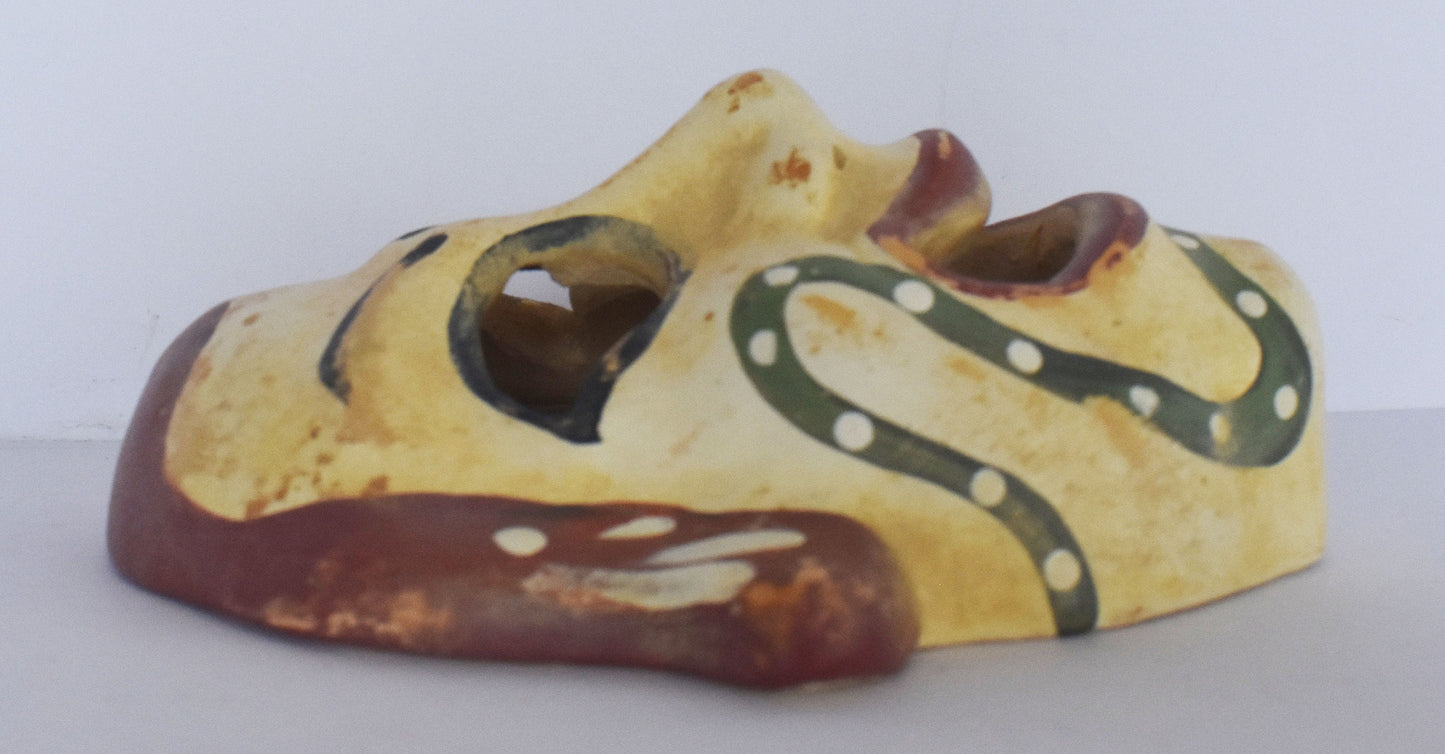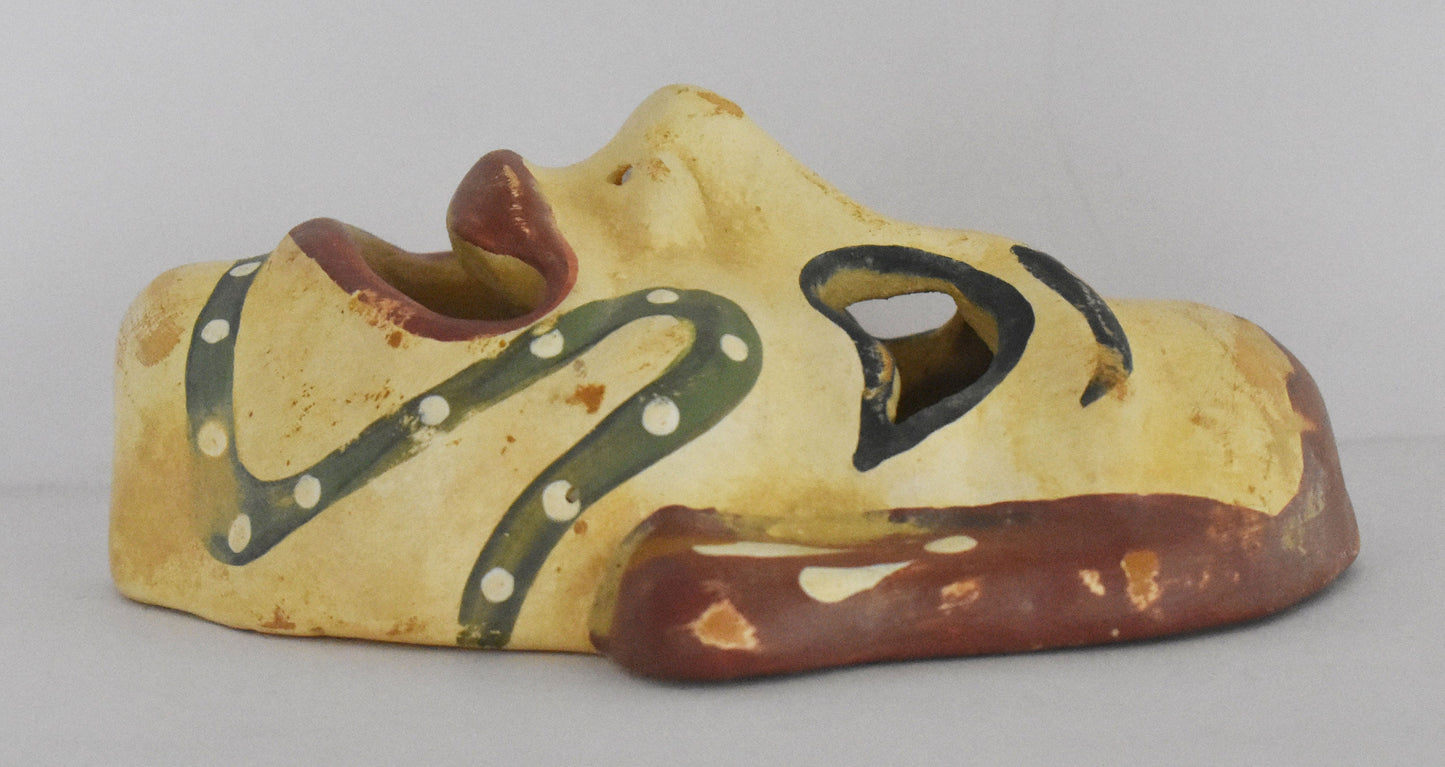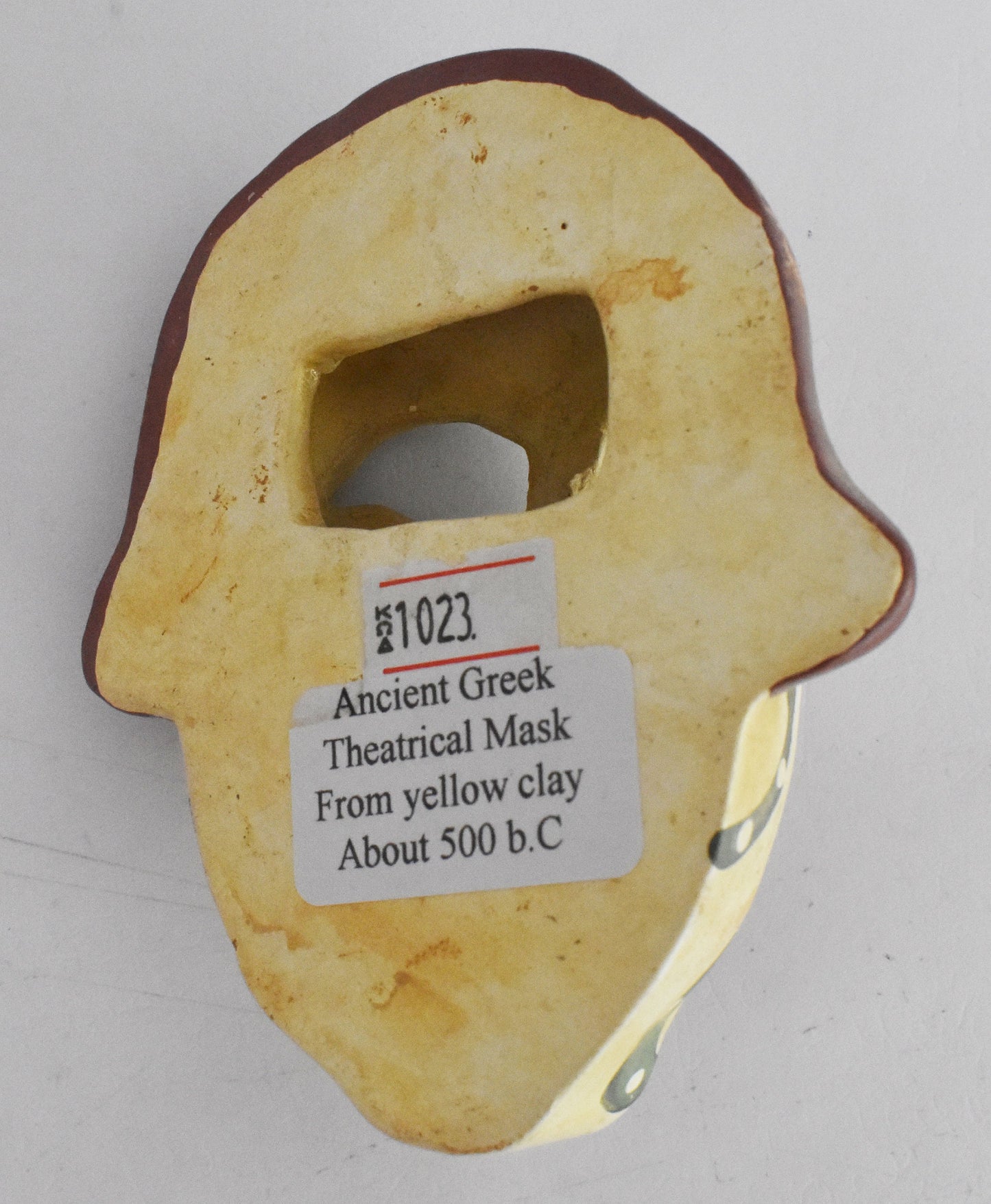Gallery Demeter
Ancient Greek Theatrical Mask - Comedy - Yellow Clay - 500 BC - Miniature - Museum Reproduction - Ceramic Artifact
Ancient Greek Theatrical Mask - Comedy - Yellow Clay - 500 BC - Miniature - Museum Reproduction - Ceramic Artifact
Regular price
€37,90 EUR
Regular price
Sale price
€37,90 EUR
Unit price
per
Tax included.
Shipping calculated at checkout.
Couldn't load pickup availability
Item Specifics
Condition: New, Handmade in Greece.
Height: 11 cm - 4,3 inches
Width: 9 cm - 3,5 inches
Length: 4,5 cm - 1,8 inches
Weight: 130 g
Greek theatre masks were made of stiffened and painted linen so none have survived to the present day. We only know what they looked like because theatre was so popular in Greek and Roman times that models of actors and masks were made in other materials such as terracotta, stone and bronze and depicted on gems and in paintings and mosaics. With its exaggerated, grotesque features, this terracotta model shows the mask worn by the old man character in many comedies of the 300s BC and later. He has a wide grin, furrowed brow and bald head and wears a wreath with ivy leaves and clusters of berries. The masks worn in tragedies were different, with idealised features set in calm, serious, or sometimes pained expressions.
Masks and the god Dionysos
Masks had certain practical uses: their distinct features made characters recognisable at a distance; they made it easier for the three actors used in plays to play more than one part each; they enabled the all-male casts to play both men and women and some experts claim that the masks helped amplify the voice so that it could be heard at the back of the large open-air theatres. However, the most significant role of the mask was that of transformation: an ordinary man could go beyond his real identity and become a mythological hero or a lusty satyr, a foolish old man or a beautiful young woman, a god or a slave. In this disguise he could say and do things that could not be said and done in everyday life, and could present to the audience events, actions and ideas that were horrifying or ridiculous, inspiring or fantastic.
Throughout the Greek world, performances of plays were usually connected with worship of the god Dionysos. It is the idea of transformation that lies at the root of this association. Although Dionysos is often thought of simply as the god of wine, it is the transformational power of wine that most characterises him. Dionysos was fundamentally the god of changeability: grapes become wine, sober becomes drunk, human becomes animal, order becomes chaos.







